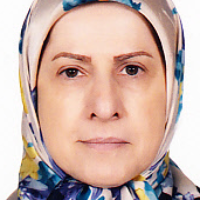Geopolitical analysis of Iran-Russia relations after the Islamic revolution with emphasis on Morgenthau's balance of power theory
Author(s):
Article Type:
Research/Original Article (دارای رتبه معتبر)
Abstract:
The countries of Iran and Russia have long been two important poles on both sides of the Caspian Sea, which are located in the heartland and rimland regions of the world. The geopolitical and geostrategic importance of the mentioned countries compared to other countries in the region has caused them to play a more dynamic role in the political equations of Central Asia and the Caucasus. Since today the factor of geopolitical power and weight has become doubly important in international relations and Russia is considered as a global power and Iran as a regional power; Two countries always use these factors in their relations to apply their policies. Hans Morgenth's theory of realism, which emphasizes the balance of power and the role of the power agent, is proof of this claim. This article tries to analyze the geopolitical relations between Iran and Russia after the Islamic Revolution with a descriptive analytical method and from the perspective of the balance of power theory. Therefore, the results of the research indicate that, just as Morgenth emphasizes the factor of power and national interests as the most important indicator in international relations, Russia always maintains all its political relations with Iran, especially in the issues of the Central Asia-Caucasus-Shamat region. And the JCPOA has been formulated in line with its national interests and has used its tactical relations with Iran based on strategic goals to increase its geopolitical power and weight. But it seems that decision makers in the field of foreign relations pay more attention to these factors.
Keywords:
Language:
Persian
Published:
Research Political Geography, Volume:7 Issue: 1, 2022
Pages:
141 to 155
https://magiran.com/p2490862
مقالات دیگری از این نویسنده (گان)
-
The impact of the Ukraine war on the relations between Iran and Russia
ELAHEH KOOLAEE *, Somayye Zangegeh
Journal of Political and International Approaches, -
Middle Eastern Elites, the Subjects of the Eurocentric International Order
Elahe Kolaee *, Javad Bayat Mirgaloye
Political Quartely,


